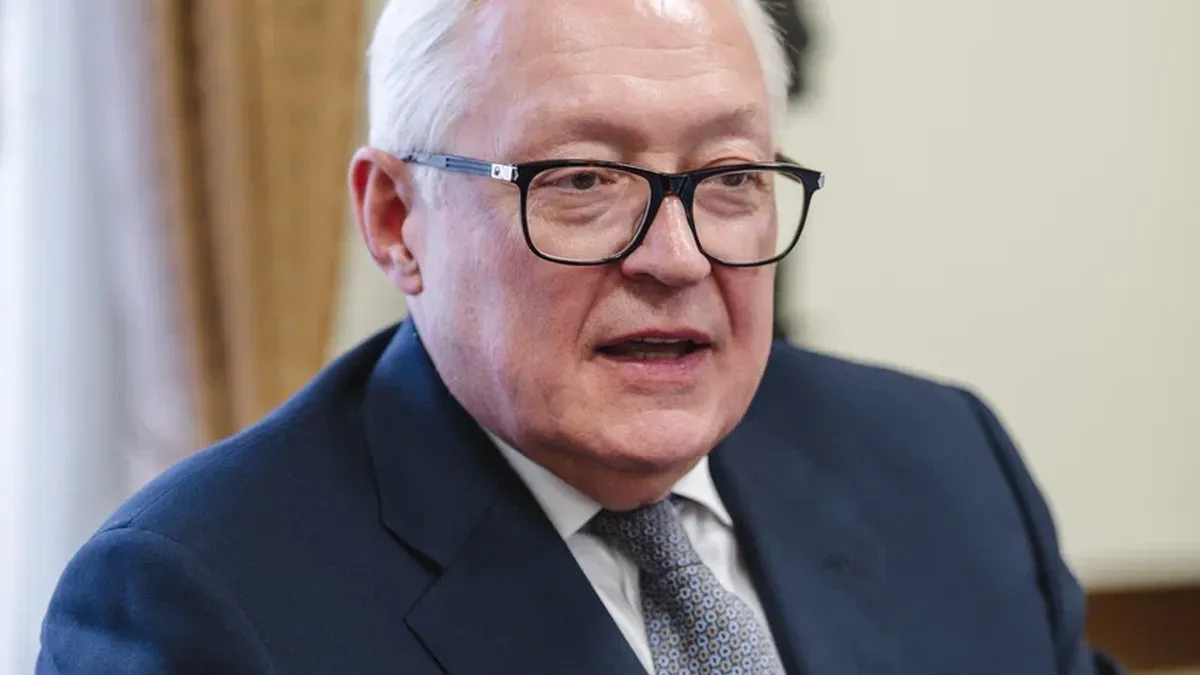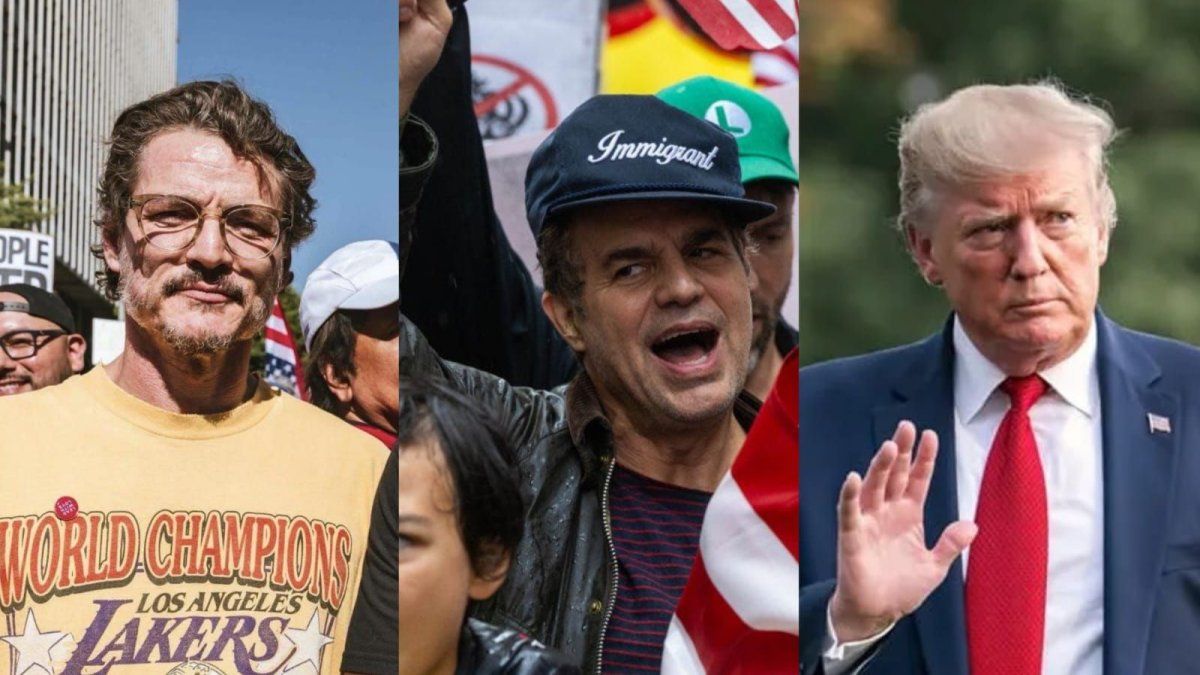“We want to develop a forward-looking and progressive relationship with Milei“, proposes the official, while betting that “the Argentine people know how to move forward and choose who will be in front“, as well as its priorities in “business matters and development of dialogue with the rest of the world.”
Likewise, the vice minister of Foreign Affairs remembers with sympathy the management of the former president Alberto Fernandezsince Russia was in a “advanced phase of dialogue” for the exploration of various relevant bilateral projects: from the provision of electric trains suburban, passing through oil technologies and of refinementeven cooperation in the field nuclear.
The limits of bilateral trade and the key national product for Russians
“It is true that, in previous years, our bilateral relations were in a better state. We wish those times would return,” the official proposes and adds: “With Argentina today trade is more limited”.
However, he assures that there is a particular product that nourishes bilateral trade: Argentine Malbec wine. “We are addicted to it. It is essential for any Russian party.“Ryabkov admits, with a certain fervor. Fruits, meats, fish and cheeses are also part of the Argentine diet that is exported to Russia.
At the same time, it also highlights that the country provided Argentina more than 20 million doses of the Sputnik V vaccine against COVID-19.
In any case, the truth is that the search for specific figures that support trade between both countries becomes uphill. It is that the information provided by both parties in this sense is limited.
According to Salvador Scarpino, a graduate in International Relations, the commercial relationship “It’s pretty marginal.”, especially after the Russian military operation in Ukraine.
“From then on we stopped having official data,” warns Scarpino. Prior to the war, trade was less than US$1,000 million. “It is a very low amount for two strategic partners. In 2021 we export around US$400 million and in 2020 the same”remembers the specialist.
With the sanctions and economic, commercial and financial blockades against Russia, Argentine companies had difficulties in deepening a commercial link with Russia. At the same time, the outsourcing of trade to those countries that decided to maintain bridges makes it difficult to obtain specific data, comments the academic.
2EE4703F-EEE9-4454-9E27-C90BD5A3D3FE
The Russian response to the swap with the United States that Argentina seeks to finalize
On the other hand, this medium asked Ryabkov how he read the geopolitical recent search for financing promoted between Mileihis economic team and the United States, and whether that could condition the bilateral relationship with Russia.
On the subject, the official responded that the Russian Federation “does not in any way question the relationship of mutual understanding“with the US and what if Argentina managed to strengthen its currency and avoid exchange volatility through a swap”whether with the US, China or others”, then they would celebrate the effort.
However, he does not ignore that Russia has long sought “work in alternative structures” to the Bretton Woods institutions -IMF and the World Bank- since the country “It is one of the most sanctioned in the world” and requires economic growth without depending on such institutions, while countries in the global south could have “greater participation and decision-making capacity” in new entities.
A strategic alliance that ensures pursuing such an objective is BRICS+but the Argentine president decided to interrupt the incorporation request processed by the previous administration. “We fully respect that decision. The doors of the block remain open”comments Ryabkov about it.
Russia-Ukraine war conflict: status and prospects for completion
Finally, the Deputy Foreign Minister referred to the state of negotiations with Ukraine: “Three rounds of talks were held in the form of delegations. After that, They stopped responding to our messages in which we expressed our willingness to continue,” says the official, within the framework of the war conflict that has engulfed both countries since 2022.
After the first instance of direct dialogue between Russia and the country chaired by Volodimir Zelensky, it was agreed 80% of what the final treaty would have beenl.
The document included provisions for the demilitarizationthe withdrawal of long-range capabilities and the dismantling of elements of Ukrainian legislation such as the Russian language ban in official communication, education or other areas.
“Now, many say that Russia refuses to talk to Zelensky. Putin is not against talking to Zelensky. First we need to know what are the two or three central issues on which we must reach agreement. Otherwise, it would be a failure and it would end up turning against us,” Ryabkov understands in line with a possible resumption of dialogue.
According to the diplomat, the Russian position against Ukraine is based on the deliberate attack on civilians, non-compliance with the second Minsk Agreement and the decision to introduce troops into the eastern regions.
“Everything has been deliberately denied by kyiv, the United States and the European Union, which has played an extremely negative role“, says Ryabkov, in dialogue with this medium.
Likewise, after the last telephone contact with Putin, the American President Donald Trump relativized Zelensky’s recent request to finance long-range missiles to Ukraine.
“Hopefully, they won’t need them. Hopefully, we can finish the war without thinking about the Tomahawks“Trump told reporters at a joint press conference.
Meanwhile, last Friday Putin spoke by telephone with the Hungarian Prime Minister Viktor Orbánwith the intention of coordinating a high-level in-person meeting with the US president in Budapest.
Anyway, Ryabkov maintains that the ultimate goal is communication with kyiv. “When the delegations meet, we hear how Ukrainians speak Russian. If you had a moment to see how many Ukrainian surnames there are in Russia, you would be surprised. And vice versa, too,” reflects the official.
The economic impact of Western sanctions: millionaire embargo and Russia’s possible response
In economic terms, one of the most impactful measures that Russia faced was the freezing of more than US$300,000 million in Russian central bank assets deposited in the West.
Already in 2024, the European Union had adopted a plan to use the interest generated by these frozen assets to support Ukraine, at the same time that Paris had proposed use such assets as collateral in case Moscow violated a ceasefire agreement.
For this reason, Putin condemned this strategy as “heist” and in June the Kremlin stated that a deal would require a “waiver of mutual claims” in relation to “damage caused in military operations.”
As reported by Bloomberg on October 1, the Russian government plans to massively confiscate foreign assets in Russia, for which the Russian president, Vladimir Putinwithin the framework of a new confiscation mechanism.
Although the Kremlin did not officially communicate this information provided by the media, the spokesperson for the European Commission Balázs Ujvári said that the EC “is aware of the information that Russia is preparing measures for mass confiscation of Western assets.
In that sense, he stressed that he considered the Kremlin’s possible retaliation “unfair,” since the CE “only plans to use Russian state assets”, while Putin “would allow assets that are privately owned by Western companies to be confiscated.”
a week before, Zakharova described as “banal theft” the EU’s plans on frozen Russian assets. According to the official, “Russia has a sufficient arsenal of countermeasures and opportunities for an adequate political and economic response.” The spokesman for the Russian presidency, Dmitry Peskovhad previously said that the country “will respond in terms of ensuring your interests“.
According to a report released in July by the law firm Nektorov, Saveliev and Partners (NSP), since the beginning of the war Russia has nationalized US$50 billion in private assets. According to the firm, the sum is equivalent to approximately one third of annual military spending and consists of 102 confiscation cases of assets belonging to industries relevant to sustaining the Russian war effort.
Source: Ambito




